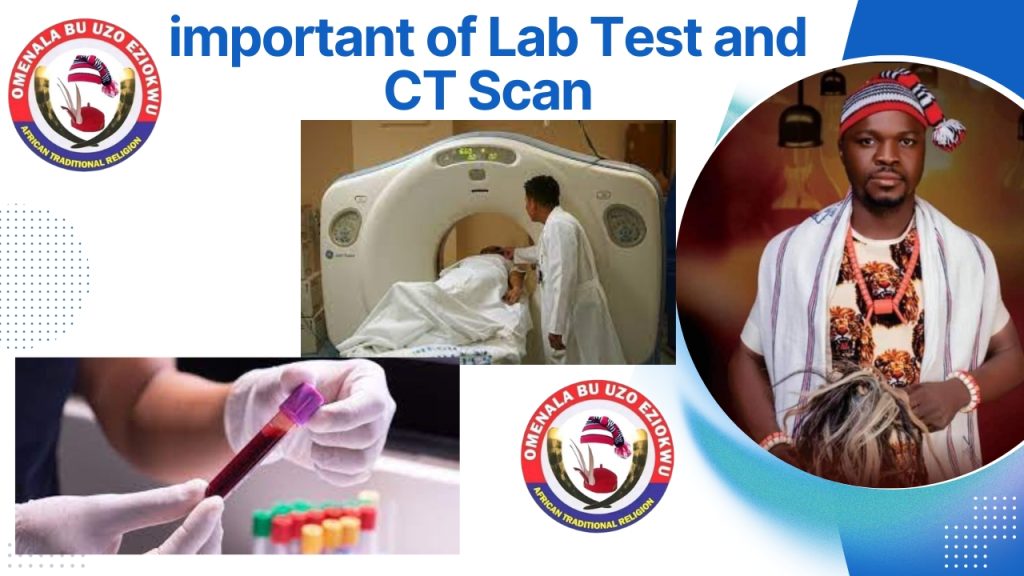Conducting laboratory tests in hospitals is of paramount importance for several reasons, as they play a crucial role in patient diagnosis, treatment, and overall healthcare management. Here are some key reasons why laboratory tests are essential in healthcare settings:

- Disease Diagnosis: Laboratory tests help healthcare professionals accurately diagnose various medical conditions. By analyzing blood, urine, tissue samples, and other biological materials, doctors can identify the presence of infections, diseases, and abnormalities that may not be evident through physical examination alone.
- Treatment Planning: The results of laboratory tests provide critical information for formulating an appropriate treatment plan. Knowing the specific pathogens, levels of certain substances (e.g., glucose, cholesterol), or genetic markers can guide physicians in prescribing the most effective medications and therapies tailored to the patient’s needs.
- Monitoring Progress: Laboratory tests are essential for tracking a patient’s progress during treatment. Regular testing allows healthcare providers to assess whether a treatment is working as expected, make necessary adjustments, and ensure the patient is on the path to recovery.
- Preventative Care: Some laboratory tests, such as cholesterol screenings, glucose tests, and cancer screenings, are used for preventive purposes. They help identify risk factors and conditions at an early stage, enabling healthcare professionals to intervene and initiate preventive measures, reducing the risk of severe health complications.
- Screening and Early Detection: Routine laboratory tests are vital for early detection of diseases like diabetes, cancer, and infectious diseases. Detecting these conditions at an early stage often leads to more successful treatment outcomes and improved prognosis.
- Public Health Surveillance: Laboratory tests are crucial for monitoring and controlling the spread of infectious diseases, such as influenza, HIV, and COVID-19. By identifying cases promptly and understanding the epidemiology of diseases, public health agencies can implement measures to contain outbreaks and protect the community.
- Research and Development: Laboratory tests support medical research by providing valuable data on disease trends, treatment efficacy, and the development of new diagnostic tools and therapies. This research helps advance medical science and improve healthcare outcomes.
- Patient Safety: Laboratory tests contribute to patient safety by ensuring that blood transfusions, organ transplants, and other medical procedures are carried out with compatible and safe materials. Testing helps prevent adverse reactions and complications.
- Data-Driven Decision-Making: Modern healthcare relies heavily on data-driven decision-making. Laboratory test results are an integral part of a patient’s medical record, allowing healthcare providers to make informed decisions based on quantitative and qualitative data.
- Quality Assurance: Laboratories follow strict quality control measures and accreditation standards to ensure the accuracy and reliability of their test results. This commitment to quality helps maintain the trust of both healthcare professionals and patients.

laboratory tests are indispensable in hospitals and healthcare settings as they provide critical information for diagnosing and treating diseases, monitoring patient progress, preventing illnesses, and advancing medical knowledge. They are an integral component of modern healthcare, helping to improve patient outcomes and enhance overall public health.
Conducting a CT (computed tomography) scan test in hospitals is important for a variety of medical and diagnostic reasons. CT scans are valuable tools in the field of healthcare because they offer several advantages that help in the diagnosis and treatment of various conditions. Here are some key reasons why CT scans are important:
- Detailed Imaging: CT scans provide highly detailed cross-sectional images of the body’s internal structures, including bones, organs, blood vessels, and soft tissues. This level of detail allows healthcare professionals to visualize and assess abnormalities, injuries, or diseases with great precision.
- Accurate Diagnosis: CT scans are instrumental in diagnosing a wide range of medical conditions, including but not limited to cancer, heart disease, stroke, trauma injuries, infections, and structural abnormalities. Their ability to produce detailed images helps physicians pinpoint the location, size, and nature of a problem, leading to more accurate diagnoses.
- Emergency Medicine: CT scans are crucial in emergency situations. They can quickly identify life-threatening conditions like internal bleeding, head injuries, or organ damage, enabling healthcare providers to make rapid treatment decisions that can be lifesaving.
- Treatment Planning: Once a condition is diagnosed, CT scans play a critical role in treatment planning. Surgeons use CT images to plan surgeries with precision, ensuring that they target the affected area while minimizing damage to healthy tissues. Radiation oncologists use CT scans to plan radiation therapy for cancer patients.
- Monitoring Progress: CT scans can be used to monitor the progress of treatment over time. Doctors can compare successive scans to assess how a condition is responding to therapy, making it possible to adjust treatment plans as needed.
- Minimally Invasive Procedures: CT-guided interventions, such as biopsies and drainage procedures, allow healthcare professionals to access and treat specific areas of the body with great accuracy and minimal invasiveness. This reduces the need for more invasive surgeries.
- Cancer Staging: CT scans are valuable in determining the stage of cancer, which is crucial for selecting the most appropriate treatment options and predicting the prognosis of cancer patients.
- Research and Education: CT scans contribute to medical research by providing a wealth of data on various medical conditions. They are also used for educational purposes, helping train healthcare professionals and students in understanding anatomy and pathology.
- Patient Comfort: Compared to some other imaging techniques, CT scans are relatively quick and non-invasive. They often provide information that would otherwise require more invasive procedures, reducing patient discomfort and recovery time.
- Innovation and Advancements: Ongoing advancements in CT technology continue to enhance its diagnostic capabilities. Newer CT scanners offer lower radiation doses, faster scanning times, and improved image quality, further improving patient care.
CT scans are essential diagnostic tools in hospitals because they offer detailed and accurate imaging of the body’s internal structures. They are instrumental in diagnosing medical conditions, planning treatments, and monitoring patient progress. The versatility and precision of CT scans make them a vital component of modern healthcare, contributing to better patient outcomes and the advancement of medical knowledge.

